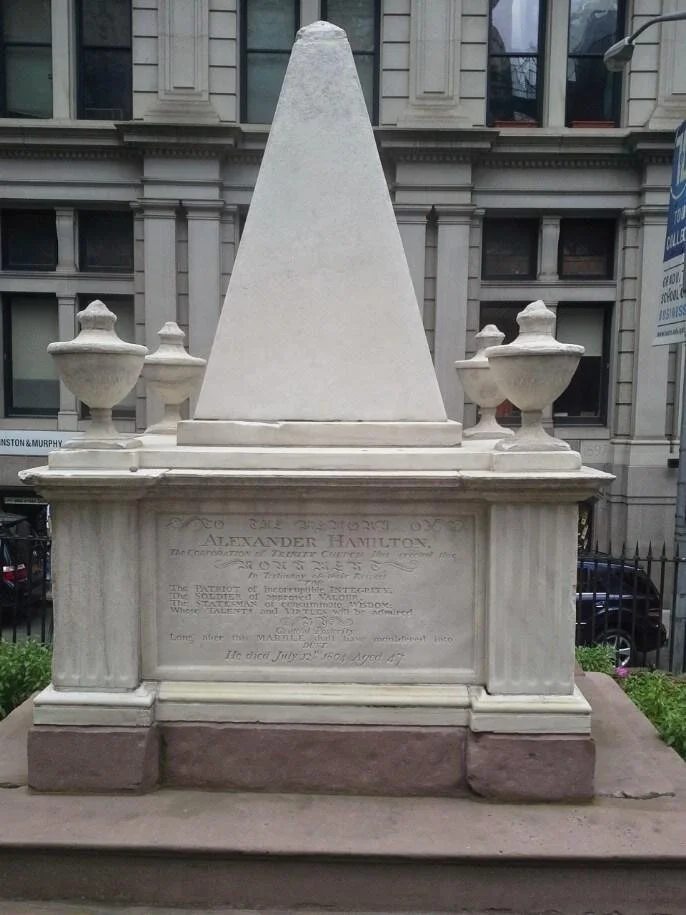"Obituary" by Steve Legomsky
Obituary
AIDEN QUINN, LONGTIME HOST OF “POLITICS TODAY,” DIES AT 93
Approached by an excited fan who exclaimed, “I love your show — I literally have
not missed a single episode in the past sixteen years,” Mr. Quinn replied with a
pained expression, “Do you really have nothing better to do with your time?”
One of the most enigmatic figures of our time died on Tuesday, at age 93. Aiden Quinn is best remembered as the ebullient host of the nationally-broadcast “Politics Today,” one of the nation’s longest-running conservative radio talk shows. At one point he was indisputably the most influential private-sector advisor to President Stephen Arends, often credited with persuading the President to retreat from his campaign promise to establish a new Department of Environmental Affairs. A self-described libertarian, who drew rebukes from older Americans of all political stripes for advocating the repeal of both Social Security and Medicare, he was nonetheless an outspoken hawk in matters of foreign affairs and U.S. military policy. Asked frequently how he could square his libertarianism with his military adventurism, Mr. Quinn would invariably respond that “one issue has nothing to do with the other” and firmly decline to discuss it further.
Known for his quiet, intellectual analyses of political issues and his respectful treatment of hostile callers, he carved out a distinctive niche in a conservative radio talk show world increasingly beset by verbal venom. “Light illuminates; heat melts,” he would frequently say. All the more shocking it was, then, when he lost his composure during a heated exchange in 1994 with an African-American caller, spewing a vile racist epithet that prompted his immediate dismissal and the termination of his show.
The next day, Mr. Quinn mysteriously disappeared from public view, not to reemerge until four years later. Even his family insisted they did not know his whereabouts. Upon his 1998 return, he gave an emotional, impromptu press conference at which he tearfully apologized to the African-American community for his racist outburst and pledged to donate 50% of his net worth to the civil rights cause. Amidst passionate cries of “betrayal” from a white supremacy group, he proceeded to make large contributions to the Illinois chapter of the NAACP and several national voting-rights organizations.
Just days after his sudden reappearance and public apology, during an evening walk in his quiet suburban Evanston, Illinois, neighborhood, Mr. Quinn was brutally assaulted, suffering injuries that resulted in several weeks of hospitalization and the permanent loss of the use of both his legs. He would spend the rest of his life in a wheelchair. Questioned by the police, he adamantly refused to share any details of the attack. To this day, no one knows the identity or motive of the attacker or the reasons for Mr. Quinn’s silence.
A year later, Mr. Quinn consented to an interview with this newspaper. In one notable exchange, reporter Deborah Berkowitz asked Mr. Quinn, “What would you say have been the driving forces in your life?” She reports that Mr. Quinn reflected for several seconds before replying, “shame and fear.”
Ms. Berkowitz followed that with, “What are you ashamed of?” Mr. Quinn fell silent and shook his head. “What are you fearful of?” After another pause, she asked Mr. Quinn whether someone was threatening him. At that point, she reports, a visibly shaken Mr. Quinn terminated the interview.
In 2005, Mr. Quinn and his wife of 50 years, Claudia Endelman, divorced. Reports that he had been suffering from depression began to circulate.
Later that year, citing his atonement and the passage of time, Chicago radio station KBUU brought him back to host a new talk show that featured a now more politically-moderate Aiden Quinn. The show began just weeks after his divorce, and colleagues at the station reported that it seemed to rejuvenate him. For two years, the show was highly successful, and on July 4, 2007, according to colleagues, Mr. Quinn arrived at the studio in a jovial mood. But listeners to that day’s broadcast commented that he seemed nervous and distracted. He would end that day’s show with a cryptic line: “You might want to change your stripes, but in the end, people will not let you.”
Mr. Quinn failed to appear for his scheduled show the next day. The station managers tried frantically to reach him, but to no avail. One week later, he phoned to inform them that he would not be returning. Never again would he appear on the air, and never again would he be spotted in public.
AN EXTROVERT TURNED RECLUSIVE
Not much is known about Mr. Quinn’s life from that day until his death thirteen years later. Mrs. Helen Martins, the wife of Mr. Quinn’s closest friend, Arthur Martins, reports that her husband would visit Mr. Quinn several times a week at Mr. Quinn’s home in Evanston and that the two men would typically drink wine and play cards. She added that “Aiden didn’t seem to have any other particularly close friends. I think the visits from Arthur were what sustained him.”
Mr. Quinn died in his home, on the same day and at almost the same time of the morning that Mr. Martins died. Evanston police chief Darryl White has announced that autopsies will be performed on both gentlemen but declined to disclose why.
A MODEST BEGINNING AND A METEORIC RISE
Aiden R. Quinn was born on April 18, 1927, in Galway, Ireland, the youngest of four children. His family immigrated to the United States in 1938, settling in Richmond, Virginia. Young Aiden would go on to attend the Missouri School of Journalism from 1945 to 1949. There he formed fast friendships with a number of older, returning World War II veterans, who were studying on GI Bill stipends. He reportedly felt deep regret and even some embarrassment that he had been too young to fight alongside them. His interest in national and world affairs originated and deepened during those college years, as did his conservative political outlook. Upon his graduation, Mr. Quinn accepted a job as a reporter for the Chicago Tribune. Assigned at first to cover local news, he impressed the senior editors with his writing talent and after just a
year on the job was allowed to contribute copy to the editorial team. His meteoric rise continued with the award of his own column at age 27. A year later, Mr. Quinn married Claudia Endelman; they would go on to have two children, Aiden Jr. and Blaire. As Mr. Quinn’s column pontificated on a range of conservative political causes, his reputation spread beyond Chicago. By the time he turned 30, his column had become nationally syndicated.
In 1969, a far-right-wing splinter group of the Illinois Republican Party urged the now-accomplished journalist to challenge incumbent Senator Charles Percy, whom this group considered too moderate, in the upcoming Republican primary. Intrigued and undoubtedly flattered by their entreaties, Mr. Quinn threw his hat into the ring, only to be soundly defeated by Senator Percy.
Disappointed by that defeat, Mr. Quinn resumed his nationally-syndicated column but found himself thinking more and more about possible career changes. His opportunity came in 1973, when radio station KBUU in Chicago invited him to host a new talk show. Within months, “Politics Today” would become the most popular conservative radio talk show in American history.
In addition to Mrs. Endelman, Mr. Quinn is survived by his son, Aiden Quinn, Jr., of Richmond, Virginia, who remembers him as “a good man and a loving father,” and his daughter Blaire Jeffers, of Durham, North Carolina, who declined to comment.
Mrs. Endelman, speaking shortly after their divorce, described Mr. Quinn as “a devoted husband whom I never knew.”
Steve Legomsky
Steve Legomsky lives in St. Louis. He is a former mathematician and Washington University law professor, specializing in immigration, refugees, and human rights, and an Obama Administration official. Steve has had visiting research or teaching appointments in twelve countries and has published three scholarly books (Oxford University Press and West Academic); numerous academic journal articles (full list at https://law.wustl.edu/faculty-staff-directory/profile/stephen-h-legomsky/); one novel, The Picobe Dilemma (Booklocker.com, 2017); and short stories in The Ravens Perch, Fewer than 500, the Broadkill Review (forthcoming April 2021), Idle Ink, Offcourse, and 50-Word Stories. His odd jobs have included shoveling horse manure (literally), caddying, and selling shoes.
Headshot: Bill Matthews
Photo Credit: Staff


